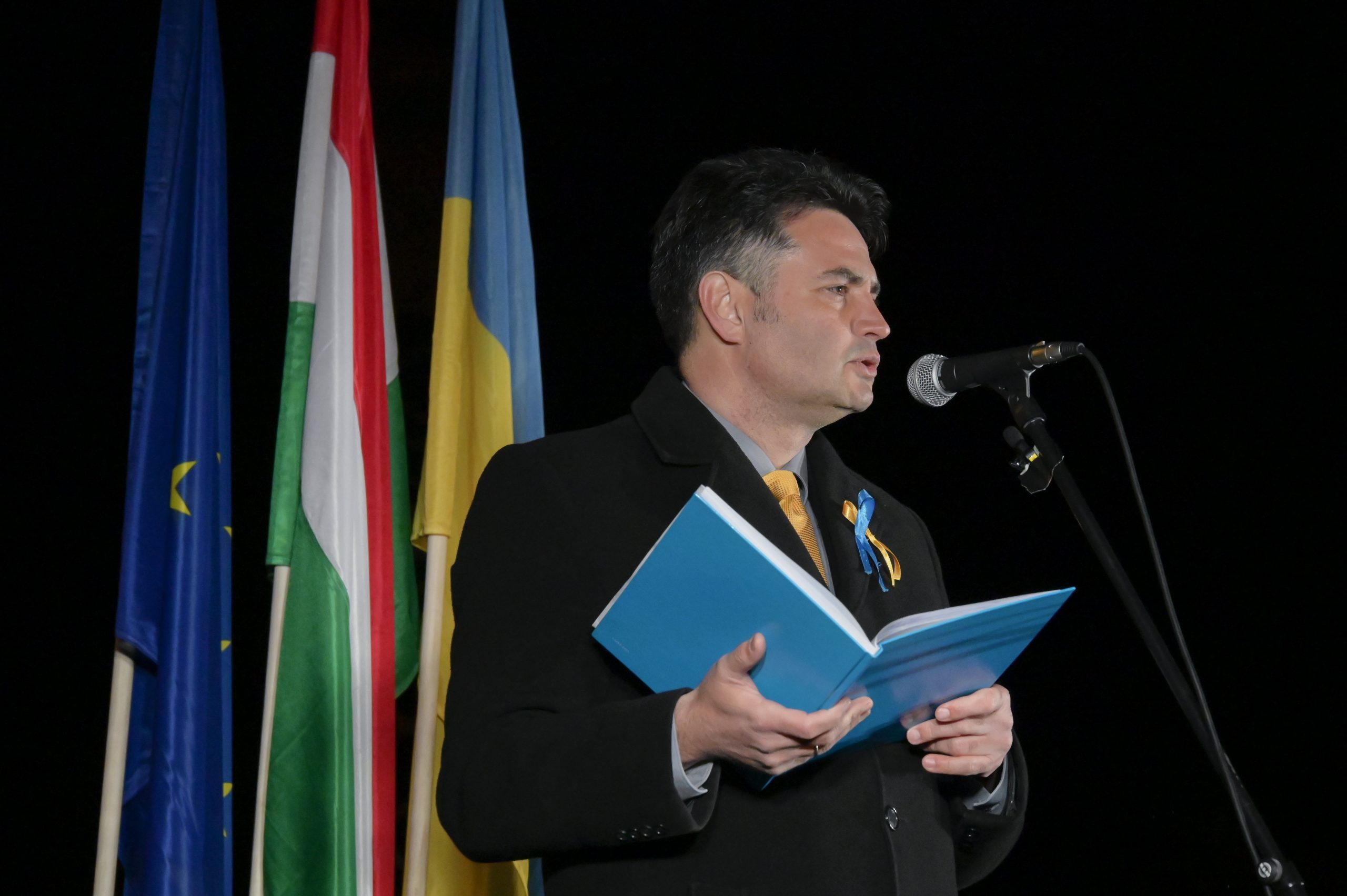
The opposition alliance's candidate for prime minister, Péter Márki-Zay, called PM Orbán a "mercenary and servant" of Russian President Putin and said he was partly to blame for the situation in Ukraine.Continue reading

The opposition Párbeszéd party on Thursday slammed the government for “acting as a vassal to [Russian President Vladimir] Putin”, saying that Hungary continued to be a member of the International Investment Bank (IIB), even as five European states were leaving the institution.
Bence Tordai, the deputy head of the party’s parliamentary group, said that Bulgaria, Romania, Slovakia, the Czech Republic, and Poland have announced they are quitting the formerly Moscow-based IIB, which Tordai called “the spy bank”.
Tordai accused Orban of “not wanting to sign the exit declaration which calls Putin’s war senseless and unjustifiable aggression against a sovereign state.”
The lawmaker said Foreign Minister Péter Szijjártó “lied” when he said the closure of the Hungarian and Austrian branches of the Russian-owned Sberbank was the consequence of “Brussels’ sanctions policy”. Noting that Prime Minister Viktor Orban also voted in favour of the measure in the EU, Tordai said the policy was a consequence of “Vladimir Putin’s aggression”.
Tordai also lambasted the government’s “outrageous foreign policy” which had accommodated “the Hungarian energy supply system’s exposure to Russia”. He insisted that it also increased the risks Hungary was facing as “the weakest link in NATO”.
“Fidesz’s incredibly weak economic policy”, Tordai insisted, had led to a historic low of the forint and skyrocketing inflation. Meanwhile, central bank governor Gyorgy Matolcsy and the government had failed to take steps to introduce the euro, he said.
Featured photo via Péter Márki-Zay’s Faceook page